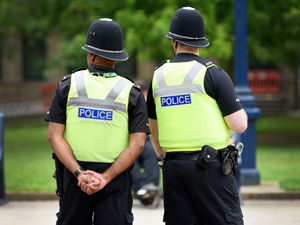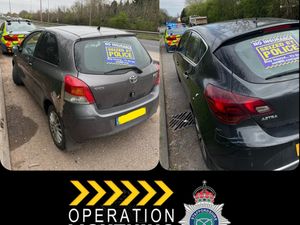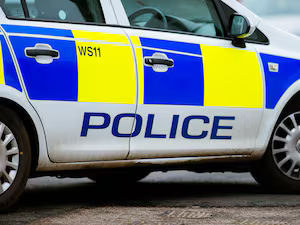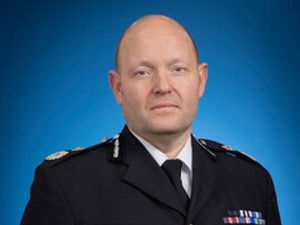Police officers 'widely misusing body-worn cameras', investigation finds
An investigation has found that police officers are switching off their body-worn cameras when force is used, as well as deleting footage and sharing videos on WhatsApp.

The investigation was completed by the BBC, and it found more than 150 reports of camera misuse by forces in England and Wales.
The BBC managed to obtain footage from a Wolverhampton officer who was jailed for assault after it was shown at his trial, where there was a legal obligation to disclose evidence.
Pc Neville Bridgewood was among a group of officers who responded to a panic alarm on a bus outside Bilston bus station on September 26, 2021.
West Midlands Police said the incident involved a man who had failed to pay his fare and during an altercation the officer pushed the suspect who fell and sustained a cut to his leg, which did not require hospital treatment.
Bridgewood, 39, was found guilty of assault following a two-day trial at Birmingham Magistrates Court and jailed for 12 weeks.
Reacting to the BBC investigation, a West Midlands Police Chief Superintendent Officer, Ian Green, said: "We’re one of the leading forces when it comes to police use of body-worn video in the UK, and have 6,500 cameras deployed with officers around the West Midlands.
“In the last 12 months alone, we used body-worn video 1.37 million times – capturing vital evidence which has secured countless convictions, including cases where officers have been assaulted.
“They’re a vital tool in capturing early accounts from victims and witnesses, quickly capturing and sharing CCTV and other pieces of evidence at crime scenes.
“Officers know their responsibilities to ensure body-worn video is only used with a policing purpose.
"They can't delete footage or choose not to upload any selected from their cameras – everything on the camera is uploaded whenever it is docked.
“Evidential clips are stored for several years, and all access to our archive of footage is audited so we know exactly who has been accessing footage.
“In rare cases where it is misused, officers can expect to face serious consequences.
“We work with community scrutiny panels who examine footage where we have used force on members of the public, and also from cases where we’ve used our stop and search powers.
“They review the officers’ written record of an encounter, and compared it to the actual footage – to ensure that the use of force was necessary, and people who were stopped and searched were treated fairly and respectfully.
“We are also working with youth panels, made up of children as young as 14, where we go into schools and show them body worn video.”
"We are constantly exploring new ways to use the technology to make communities safer."
The Home Office says police use of cameras must be lawful and justified.
The roll-out of body-worn cameras, costing at least £90m over the past decade, was intended to benefit both victims and the police - protecting officers against malicious complaints and improving the quality of evidence collected.
But during a two-year investigation, the BBC obtained reports of misuse from Freedom of Information requests, police sources, misconduct hearings and regulator reports.
The cameras were introduced to improve policing transparency, but the investigation found more than 150 camera misuse reports with cases to answer over misconduct, recommendations for learning or where complaints were upheld.




